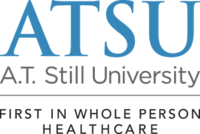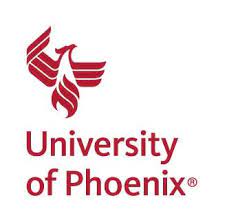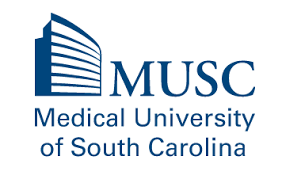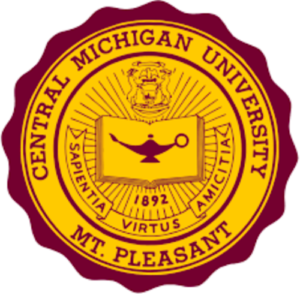Are you searching for a Doctor of Health Administration degree program? The majority of, if not all, universities that award the Doctor of Health Administration (D.H.A.) degree offer an online format for prospective students.
Some healthcare management education programs are entirely online. It is a viable option if you’re like most people who could use a flexible schedule in pursuing a higher education degree and advancing their career.
Hospitals entertain an endless surge of patients; therefore, the healthcare industry continues to grow. Medical professionals ensure that all of them get the help and treatment they need. The direction from and guidance of Doctors of Health Administration make this possible.

The 7 Best Doctor of Health Administration Degree Programs
A.T. STILL UNIVERSITY

ONLINE DOCTOR OF HEALTH ADMINISTRATION
School Highlights: A.T. Still University’s Online Doctor of Healthcare Administration program blends practical and theoretical coursework to provide a distinctive approach to a pivotal discipline.
Students choose from nine exciting concentration options to focus their coursework towards personal career goals, and the curriculum as a whole supplies enough flexibility for students to continue down individual avenues of success.
It is designed for post-graduate students with experience in the healthcare industry and drastically enhances their skills, knowledge, and capabilities as future administrators of massive medical facilities.
Health professionals further hone their range of leadership skills, from innovative problem-solving to management of improvements in healthcare administration systems. The degree can be completed 100% at a distance, and the online classroom is a state-of-the-art virtual space that encourages both independent and collaborative work.
Learners benefit from the comprehensive training delivered through a mix of efficient online instruction, chatroom and email interactions, and directed readings. Faculty members conduct regular assessments of learning and, thus, ensure that learners are on track.
With a low 9% acceptance rate, applicants must be prepared to demonstrate their suitability for the rigorous program. The minimum admission requirements include a master’s degree from a CHEA-accredited institution, official transcripts, and a 2.5 cumulative GPA. Applicants must also submit a current resume, complete an essay, and meet technical requirements for the online program.
Coursework Sample:
- Healthcare Law
- The Economics of Medical Care
- Organizational Theory and its Effect on the Health Industry
- Health Policy
- The Financing of Healthcare
- Effectiveness/Cost-benefit Analysis in the Healthcare Industry
- Health Information Systems
- Quantitative Methods
- Management Science
Campus Location: Kirksville, MO
Accreditation:
- Higher Learning Commission
LEARN MORE ABOUT A.T. STILL UNIVERSITY’S DOCTOR OF HEALTH ADMINISTRATION DEGREE ONLINE
Did You Know?
At 130 years old, ATSU is the world’s first osteopathic medical school! ATSU is also known for its research programs at its AT Still Research Institute and Center for Oral Health Research. Primary funding comes from NIH and NCCHR, among other federal agencies.
CAPELLA UNIVERSITY

ONLINE DOCTOR OF HEALTH ADMINISTRATION
School Highlights: Capella University is one of the most massively successful and popular online schools in America. It produces an unprecedented amount of graduates of all levels, which includes those from the online Doctor of Health Administration.
The fairly affordable tuition becomes even more budget-friendly with its accelerated format and financial aid. Students must complete 60 post-graduate credits but can transfer up to 18 credits from another post-graduate degree.
The curriculum of this healthcare administration degree program consists of nine core courses and three specialized courses, and it’s known for its rigorous academic standards.
The DHA program uses the university’s Guided Path format, a structured learning format that combines guidance from the faculty and active peer interactions. Students can study at their own pace but must meet the scheduled deadlines set by their professors. Assignments are given weekly and classroom discussions are encouraged.
Capella uses a quarter system with each quarter consisting of 10 weeks. Students take between one and three courses per quarter, meaning manageable coursework for working professionals.
Students must complete the capstone requirement to earn the doctoral degree, too. Most will spend at least one-third of their academic stay working on it. Tuition for the capstone work is $3,020 for four credits per quarter.
Academic success is vital for Capella’s programs and, thus, it offers a wide range of student support services. These include academic advising, writing coaches, financial aid advisors, library services, and career counselors.
Graduates become proficient in the myriad aspects of healthcare administration at the executive level. Their knowledge allows them to lead healthcare organizations toward the achievement of strategic vision, directional strategies, social accountability, and community engagement.
Admission requirements include a master’s degree, official transcripts with a minimum 3.0 GPA, and a valid government-issued ID. GMAT/GRE scores aren’t required.
Coursework Sample:
- Strategic Financial Management in Health Care
- Innovative Business Practices in Health Care
- Health Care Policy Processes
Campus Location: Minneapolis, MN
Accreditation:
- Higher Learning Commission
- National Center for Healthcare Leadership
LEARN MORE ABOUT CAPELLA UNIVERSITY’S ONLINE DHA DEGREE
Did You Know?
Capella University was named after Capella, the third-brightest star in the Northern Hemisphere.
FRANKLIN UNIVERSITY

ONLINE DOCTOR OF HEALTHCARE ADMINISTRATION
School Highlights: The Doctor of Healthcare Administration curriculum at Franklin University offers a huge amount of elective courses that students can use to fully personalize their academic approach.
These classes span a wide range of options that allow students to pursue careers in administration, research, or education. There is a comprehensive focus on leadership, and the program emphasizes the substantive advancement of theoretical analysis.
The 58-credit program can be completed in three years of full-time study, but it can be longer depending on your dissertation’s progress. A maximum of 41% or 23 credit hours can be transferred from post-graduate credits earned at another accredited institution. This is a 100% online program suitable for working professionals and other non-traditional learners.
With a $748 per credit hour tuition fee, it’s among the more affordable DHA programs. Financial aid counselors provide useful information about financial aid that further decreases the cost of attendance.
Learners gain knowledge and skills in the effective, efficient, and responsive design of organizational strategies, the development of healthcare systems, and the conduct of research in the industry. Leadership skills are emphasized and developed in every course, too.
Students receive above-par support services, including academic support from faculty members, librarians, and dissertation committee members. Franklin takes pride in its no-fear dissertation process, too, which incorporates faculty mentoring and peer-to-peer support.
At least 34 credit hours must be earned within the program and a 3.0 cumulative GPA must be maintained to earn the degree. While the 100% acceptance rate means admission is fairly easy, retention in the program is more challenging. Applicants must have a master’s degree with a minimum 3.0 GPA; petitioning for admission for a lower GPA is possible.
Coursework Sample:
- Leadership of Healthcare Organization Principles
- Foundations of Human Resource Management
- Advanced Clinical Work Flow & Applications
Campus Location: Columbus, OH
Accreditation:
- Higher Learning Commission
230 South LaSalle Street, Suite 7-500
Chicago, Illinois 60604
www.hlcommission.org, (800) 621-7440
LEARN MORE ABOUT FRANKLIN UNIVERSITY’S DOCTOR OF HEALTHCARE ADMINISTRATION (DHA)
Did You Know?
Franklin University maintains strong partnerships with over 135 community and technical colleges in the US! These partnerships are designed to provide professional development for adult learners and educational opportunities for communities.
UNIVERSITY OF PHOENIX

DOCTOR OF HEALTH ADMINISTRATION
School Highlights: The University of Phoenix is yet another of the nation’s most phenomenal online schools that offer an equally outstanding Doctor of Health Administration.
This is an accelerated doctoral degree program with approximately 38 months of time to completion. Students must complete 54 credits but can transfer up to 27 credits, meaning it’s among the fastest online DHA programs.
Adult learners with professional responsibilities will find it easier to manage their time in the program, too. Learners take one course at a time, with each course lasting for eight weeks. This means learners will take five courses per academic year, a manageable course load indeed.
The unique dissertation process breaks up the dissertation into smaller – and more manageable – segments. Students begin their dissertation at the start of the third course resulting in more time, space, and learning curve to identify and address issues. Milestones are scheduled throughout the dissertation process, too, so learners can monitor their progress.
UoPX doesn’t have an on-campus residency requirement for its DHA students. Instead, students take an 8-week online symposium that discusses a detailed overview of the dissertation process. Other topics are the university’s expectations of its DHA students and, in turn, their expectations of the university during their stay in the program.
Graduates now work as clinical directors, nursing directors, and health information management directors in prominent research and medical facilities. Their professional success can be partly attributed to the skill sets acquired in the program, such as the analysis of healthcare subsystems toward the improvement of services.
Graduates also have a deeper insight into the regulatory, economic, and social factors that influence healthcare policy, sustainability, and strategies.
UoPX has a tuition guarantee that ensures students pay a flat rate from admission to graduation. Its DHA program is also among the more affordable even amongst private, for-profit universities.
Students are also guaranteed exceptional student support services, including a support team and academic counselors. Online resources include tutoring, productivity tools, and a student toolbox.
A graduate degree with at least a 3.0 GPA, sufficient work experience in management or supervisory positions, and citizenship/residency are required for admission.
Coursework Sample:
- Administration of Complex Health Care Systems
- Risk Management in Complex Health Organizations
- Policy and Regulations in Health Care
Campus Location: Tempe, AZ
Accreditation:
- Higher Learning Commission
LEARN MORE ABOUT THE UNIVERSITY OF PHOENIX’S DOCTOR OF HEALTH ADMINISTRATION
Did You Know?
In 1989, UoPX offered online classes at a time when few other universities were in it. Today, it’s known for its diverse student body with more African Americans and women than most institutions in the US.
MEDICAL UNIVERSITY OF SOUTH CAROLINA

BLENDED DOCTOR OF HEALTH ADMINISTRATION WITH CONCENTRATIONS
School Highlights: The Doctor of Health Administration at the Medical University of South Carolina follows a hybrid model of delivery. For the first two years of their studies, learners participate in online didactic coursework with an asynchronous format combined with one on-campus visit every term.
The on-campus visits, which last for 3-4 days, typically happen in September, January, and June in Charleston, South Carolina. These are replaced by a week-long trip to Washington DC for policy studies during their second year.
Their third year means more focus on their doctoral research projects with little to no didactic coursework. Students must identify a research topic for approval and then work on the completion of their individual doctoral research project. Faculty advisors provide mentoring and guidance until completion.
The 58-semester-hour curriculum offers two unique specialization options. First, the Health Administrator track focuses on leadership in health policy, health administration, and strategic management.
Second, the Health Professional Track is geared more toward developing interprofessional leaders in healthcare. Both tracks have small class sizes with the average cohort class, which starts every fall semester, being 26 students.
All learners complete 40 semester hours of academic coursework, including nine semester hours on concentration courses. The doctoral project represents 18 semester hours. Full-time enrollment is six credit hours or two courses per semester.
The average time-to-completion is three years for full-time students who complete their dissertation within the scheduled milestones. There’s a 7-year cap on completion of the degree requirements.
Graduates are now Health Systems Presidents and CEOs, Chief Financial Officers, and Medical Directors at prominent facilities, as well as respected educators at healthcare colleges and universities.
Regardless of residency status, full-time students pay the in-state tuition of $10,290 per semester. Minimum admission requirements include a master’s degree in a healthcare-related field and relevant work experience. Short-listed applicants will be called in for an interview.
Concentration Options:
- Health Administrator Track
- Health Professional Track
Campus Location: Charleston, SC
Accreditation:
- Southern Association of Colleges and Schools Commission on Colleges
LEARN MORE ABOUT THE MEDICAL UNIVERSITY OF SOUTH CAROLINA’S HEALTH ADMINISTRATION DOCTORATE
Did You Know?
The MUSC seal highlights two Greek gods – Aesculapius, the god of medicine, and his son, Apollo, the god of healing and of the sun.
UNIVERSITY OF MISSISSIPPI

HYBRID DOCTOR OF HEALTH ADMINISTRATION
School Highlights: The University of Mississippi Medical Center is highly respected among educational institutions of healthcare. It offers an online Doctor of Health Administration degree program delivered in a hybrid format.
Students complete a large portion of the doctoral degree online and attend mandatory on-campus sessions where they collaborate with professors and classmates in their small, 10-15 student cohort.
Due to the hybrid format, out-of-state residents are accepted but must attend the scheduled on-campus sessions, with no excuses. On-campus sessions and their approximate dates are provided before the start of classes, thus, students can make advance arrangements.
Designed for post-graduate professionals with a background and experience in healthcare administration, it sharpens these individuals’ knowledge and abilities to perform as executives. The DHA focuses heavily on professionalism in the field. The curriculum explores leadership strategies in healthcare administration while combining in-depth knowledge of policy, ethics, and current regulations.
Learners must maintain a 3.0 cumulative GPA, minimum, for all courses to earn the DHA degree. Their dissertation must be approved by the department chair and student advisory committee for this purpose, too.
Applicants must present one of two types of academic and work credentials. First, they must possess either a master’s degree or a professional doctorate in a healthcare-related field with a cumulative 3.0 GPA.
Second, they must have a master’s degree with a cumulative 3.0 GPA and at least five years of work experience in a healthcare-related field. The latter must be in healthcare policy or management or a clinical medical specialty.
UMMC doesn’t accept transfer credits into its DHA program. Students must then learn and progress as a cohort on the same footing, credits-wise, in the three-year curriculum.
Coursework Sample:
- Current Trends in Accreditation & Licensure
- Health Care Law, Regulations, and Ethics
- Communications in Health Organizations
Campus Location: Oxford, MS
Accreditation:
- Southern Association of Colleges and Schools Commission on Colleges
LEARN MORE ABOUT THE UNIVERSITY OF MISSISSIPPI’S DOCTOR OF HEALTH ADMINISTRATION
Did You Know?
The University of Michigan is known by its two nicknames – The University and Ole Miss – but these have their distinctions. The University refers to its people and physical infrastructure while Ole Miss refers to its spiritual aspects – personality, emotion, and mood.
CENTRAL MICHIGAN UNIVERSITY

HYBRID DOCTOR OF HEALTH ADMINISTRATION
School Highlights: Offering online coursework combined with on-campus seminars throughout the program, the Doctor of Health Administration at Central Michigan University is an excellent hybrid program.
A 63-credit doctorate degree program, its cutting-edge curriculum analyzes the communication skills, leadership qualities, and understanding of healthcare organizations required by doctors in this field.
Students work closely with advisors, mentors, and tutors who support them throughout their years as post-graduates at CMU. They also have access to superb academic resources, such as the Global Campus Liberty Services.
The average time-to-completion is four years, but students may choose either full-time or part-time enrollment. CMU offers 3-year and 5-year degree plans for this purpose.
Regardless of enrollment status, however, the program of study has a sequential order starting with the didactic coursework consisting of 15 online courses. These are interspersed with six intensive, in-person, two-and-a-half-day seminars on the CMU campus.
The general comprehensive examination is the assessment tool used in determining the learners’ knowledge and their suitability for the dissertation phase. Students who pass the exam can then proceed to the applied research dissertation aspect of their studies.
Students learn as a cohort and pursue several learning objectives including becoming proficient in the theory, practices, and applied skills of leadership in the healthcare industry. Learners are also encouraged to present new knowledge through their dissertations.
Upon completion of the comprehensive examination and dissertation, the Career Development Center helps students obtain high-level positions of employment at the nation’s best hospitals and research facilities.
Up to 12 credits from a post-graduate degree can be transferred, but UMC doesn’t grant work experience credits. Applicants must have a master’s degree in a relevant field, at least three years of mid-level to senior-level managerial positions and English proficiency. A current resume, career goal statement, and three letters of reference are also required.
CMU has two tuition types. One is for regular students and the other is for military students. Financial assistance options are varied.
Coursework Sample:
- Quantitative Analysis in Health Organization
- Fiscal Responsibility and Accountability for Health Entities
- Health Systems Thinking and Practice
Campus Location: Mount Pleasant, MI
Accreditation:
- Higher Learning Commission
LEARN MORE ABOUT CENTRAL MICHIGAN UNIVERSITY’S DOCTOR OF HEALTH ADMINISTRATION (DHA) PROGRAM
Did You Know?
Chippewas like to greet each other, “Fire up, Chips!” as a way to acknowledge their sense of community and their shared enthusiasm.
FREQUENTLY ASKED QUESTIONS
What does a Health Administrator do?
A health administrator is a leader in the healthcare industry who manages the financial, organizational, and technological operations in medical institutions. They are equipped with leadership skills to implement systems in the healthcare industry.
One of the core functions of health administration is financial management. A healthcare executive calculates medical expenses and, from that data, decides on the most cost-effective course of action. Through cost-benefit analysis, medical practitioners can optimize health services and give their patients the best experience.
On a macro level, health administrators work in regional, national, or global health organizations to address epidemiological concerns. In other words, health administrations are the geniuses that prevent HIV, Ebola, bird flu, and other outbreaks from potentially harming communities. They stop the spread of diseases by tracking human patterns in migration, tourism, trade, and other transport opportunities.
Aside from taking charge of money and administrative matters, health administrators also pay close attention to Information Technology. They utilize cutting-edge technology to handle responsibilities that pertain to population health and management.
By being involved in the financial, bureaucratic, and technical processes of medical businesses, healthcare financial management personnel are the key persons who aid legislators in developing policies related to healthcare.
What sort of accreditation should I look for in a school?
The Higher Learning Commission (HLC) provides accreditation to all tertiary-level academic programs in the country, including the D.H.A. Accreditation from the Distance Education Accrediting Commission (DEAC) that may supplement the school’s eligibility to open online programs.
Affiliation with professional organizations such as the National Center for Healthcare Leadership (NCHL) and the American College of Healthcare Executives (ACHE) certainly helps improve a D.H.A. institution’s reputation.
How do I earn my D.H.A. degree?
To enter a D.H.A. program, you must have a master’s degree related to public health. Medical professionals, doctors, nurses, dentists, and more are encouraged to take their educational level a notch higher.
Bachelor’s degree holders may also apply in a straight program wherein students earn a master’s degree in the same university with fewer coursework requirements upon proceeding with the D.H.A. program.
If you are studying full-time, you can finish the D.H.A. program within 3 to 5 years. Study on a part-time basis and earn your D.H.A. degree in 7 to 10 years.
The written research requirement varies depending on your school. Some universities require students to write a dissertation, while others have them work on a “doctoral project” or a capstone project. These deliverables are necessary to develop the research skills of graduate students while also giving them opportunities to contribute to health.
The final project of the D.H.A. program involves quantitative research methodologies and comparative studies of different health services around the globe.
You might encounter the Sca.D. title (salutem cura administrationem in Latin), which is an equivalent doctorate of Doctor of Health Administration (D.H.A.).
What type of degree do I need to pursue research or educate others in Health Administration?
Due to its interdisciplinary nature, D.H.A. programs have quite an impressive faculty lineup. Professors come from the medical, scientific, and business sectors and are holders of a D.H.A., Ph.D., Doctor of Business Administration (DBA), medical doctors (M.D./D.O.), or equivalent degrees. Some professors may also have a multifaceted set of credentials, for instance, MBA and Ph.D.
Scholarly endeavors in Health Administration are publishable in journals and books related to health, business, and social sciences.
What kind of career and salary can I expect with my Doctor of Health Administration (D.H.A.) degree?
Health administrators work as officials in medical institutions. Figures from the Bureau of Labor Statistics reveal that medical and health services managers make an average of $104,830 annually. Health Administrators with D.H.A. degrees who work in big hospitals earn as much as $209,990 per year.
This professional field is expected to grow as demand rises on account of more baby boomers seeking quality healthcare.
Do I need a license to be a Health Administrator?
Most states do not require licensing requirements for healthcare administrators. However, certification matters most in this field. If you have an advanced degree like the Doctor of Health Administration (D.H.A.), your co-workers and patients trust that you are a highly trained specialist in the field. Aside from your diploma, membership with ACHE is valuable in the medical community.
What are the benefits of pursuing a career in Healthcare Administration with a DHA degree?
Emphasis must first be made that it’s a highly demanding career that requires its practitioners to possess excellent leadership skills, mental and emotional intelligence, and personal drive. DHA degree holders agree, however, that their advanced education contributed to their increased earnings!
The median weekly income is $1,883 or $97,916 per year, a significantly higher amount than for individuals with a master’s degree. The difference can be as high as $800,000 more in earnings over a 40-year career.
Their average unemployment rate – just 1.1% – is also the lowest among individuals with higher education, including bachelor’s, master’s, and professional degrees. Beyond the dollars, a career in healthcare administration brings several non-monetary rewards, too.
You will be involved in a profession with a significant and positive impact on individuals and their families through effective, efficient, and responsive healthcare policies. You may not be directly involved with patient care, but your decisions and actions on the policy level will influence it.
What are the best tips for getting into a DHA program?
Keep in mind that the best DHA degree programs are selective in their admission process. You must be well-prepared to compete for the limited slots and these tips will be useful.
- Comply with the admission requirements to the letter! Even a single missing information or document can jeopardize your application, even when you’re highly qualified for the program. The admission requirements are fairly standardized across DHA programs including a master’s degree in a relevant field, GRE/GMAT scores, and sufficient work experience. Your resume, personal statement, and letters of recommendation are also common. You must prepare the necessary documentation as early as possible.
- Be true to yourself including your professional goals and research interests in the short-term and long-term periods. Write them down since the interview phase will likely bring them up. Highlight your relevant qualifications and be prepared to explain your career-related decisions.
- Prepare for the interview as if getting a slot in the DHA program is a highly coveted job. Practice your answers and dress in business attire even when it’s a virtual interview.
- Make both your application and research statement stand out. With so many gifted applicants, putting more care into these documents can be your entry ticket.
What are the typical courses in DHA degree programs?
Every DHA program obviously has its unique coursework and degree requirements. But there are also common courses that underlie these programs including:
- Population health
- Dissertation and research methodologies
- Financial management
- Health organizations and their governance and economics
- Leadership principles and practices in healthcare administration
- Health informatics
Most programs can be completed in three years or less with the first two years dedicated to didactic coursework. The third and succeeding years are spent on the completion of the dissertation project, and these years are considered the most challenging.
The dissertation project demands not only intensive research but also represents an excellent opportunity for doctoral candidates to contribute to the body of knowledge in healthcare administration. The research topics must be chosen with care as they will likely undergo several reiterations before approval.
While DHA programs have a formal and standard curriculum structure, students also have a certain degree of freedom in customizing their degrees. This is where electives come in although students may still have to request approval from their academic advisor.
The specific courses and their sequential order will also differ depending on the track or concentration. There are two general tracks that universities typically offer:
- The track for current professionals in the healthcare industry with relevant graduate degrees; and
- The track for non-healthcare professionals
What is a dissertation in a DHA degree program?
Your dissertation is your individual scholarly research project that highlights your original research on an approved topic. Note that the topic must pertain to a complex and current healthcare administration issue, preferably one in your area of interest. You will likely choose a topic at the start of your doctoral studies, perhaps even present it in your research statement.
The best dissertations have a coherent and complete structure that demonstrates the scholarly work conducted. These include research studies that have been published in journals as well as other scholarly artifacts, such as applications, web pages, and policy briefs. The word count varies but 60,000-80,000 words exclusive of footnotes, appendices, and bibliography are common.
Aside from adding to the body of knowledge, your dissertation should also highlight your skill sets. You must show your ability for critical analysis of related literature, for utilizing the appropriate research methods, and for communicating your research.
You should be prepared for numerous revisions to your draft, as well as a grueling defense session before your dissertation is approved. Only when you have completed the dissertation requirement will the university grant your DHA degree.
Note: While a DHA dissertation and a PhD dissertation have similarities, these have different approaches. A DHA dissertation is designed for practical solutions to current issues, while a Ph.D. dissertation focuses on the theoretical aspects.
What are the possible jobs for an individual with a DHA degree?
Among the rewards of a health administration program (DHA) is the wide range of possible jobs, including:
- Professor in post-secondary institutions where healthcare degrees, including healthcare administration, are offered.
- Administrators in private and public healthcare settings, including hospitals, large outpatient and specialty clinics, and nursing homes. Preferred provider organizations, health maintenance organizations, and other managed care systems are also great workplaces.
- Managers, directors, and executives in the public and private sectors, such as in federal agencies, state government organizations, and nonprofits. Policy-making is among the strengths of professionals with a DHA degree, thus, their suitability in government positions.
These jobs have different compensation packages depending on the healthcare management level, too, but the median annual wage for medical and health services managers was $104,830 in May 2022, according to the Bureau of Labor Statistics – and that’s with a bachelor’s degree!
The BLS also states an actual job growth of 28% between 2022 and 2032. Just imagine how much more money and career advancement in health leadership opportunities you will have with a DHA degree.
What personal qualities do I need to excel in Healthcare Administration?
- Strong interpersonal and communication skills: Critical in coordinating between providers, patients, and insurance companies
- Analytical thinking and problem-solving: To develop and implement strategies to improve patient care and patient flow
- Leadership and management: To manage and lead a medical facility
- Strategic planning: To achieve profitability and cost-efficiency goals
- Decision-making: To assess and evaluate situations and make appropriate decisions in an effective manner
- Financial management: To understand and manage healthcare budgets and fiscal resources
- Data analysis and research: To interpret and understand medical data to assess outcomes and develop evidence-based practice
- Adaptability: To be able to respond to changes in the healthcare field
- Attention to detail: To ensure accuracy and quality when managing financial or data records
- Organization: To prioritize tasks and manage competing demands in order to maximize efficiency.
For more information:
